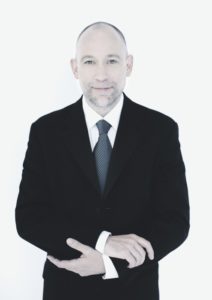German soloist and conductor Alexander Weimann says that Johann Sebastian Bach is the reason why he became a musician, so it makes sense that he’s performing Bach’s Mass in B Minor here in town on August 6 (the piece will be performed on period instruments for greater authenticity). Weimann says that Bach is “the strongest of all composers.”
“All of his compositions are great and interesting, and he was a fascinating composer for all of his life,” says Weimann, “but I find it particularly interesting the pieces he wrote at the end of his life.”
Weimann—who was born in Munich, Germany and now resides in Vancouver—says he is particularly fascinated in Bach’s late work because, for him, the quality of Bach’s life comes out in the music he composed.

“The more popular ones are usually the highest counterpoint, most intelligent kind of pieces that one can imagine,” says Weimann. “That’s what we usually associate with the late Bach.”
But Weimann says Mass in B Minor is a compilation of pieces used throughout Bach’s life.
“The first two parts of the mass, he composed, actually, in the mid-1730s. But some of the parts of the end of the mass, he wrote at the very end of his life.”
Weimann says that as long as a musician is writing material that they know is going to be some of their last, the quality of their lives is apparent in the music they write.
“Especially if a composer knows, ‘Okay, this is now the end of my career,’ and doesn’t die suddenly, I think you can feel in the texture, in the tones, so to speak, that something unusual is going on.”
Weimann, who has toured extensively across North America and Europe, says listening to Bach is magical.
“There’s something happening, and you realize, ‘Oh, wow; this is someone who goes to the edge of his expressive devices, but also to the edge of the vocabulary, so to speak.”
And Weimann says it is that unique vocabulary that Bach’s music creates that really sets him apart from other composers of his time.
“In all its variety and the big spectrum that you find in this piece, that’s what’s really intriguing,” he says.
And bringing that intrigue to the stage comes down to getting the most out of his players, which Weimann says he does by trusting and believing in them.
“This is going to be a challenging tour for everybody,” he admits. “For the singers, for the soloists it’s a big thing, because it’s a piece that’s two hours long. We do it quite a few times starting in eastern Canada then turning out west. This is going to be hard and tough on everybody—on every orchestra player, every singer, and on me, too.”
Weimann says the music makes all the travel and all the stays in hotels worth it.
“The thing that makes it easy is that a piece like this is very powerful,” he says. “It kind of unleashes its own energizing effect once you are in it. It kind of carries you through.”
J.S. Bach: Mass in B Minor
Saturday, August 6
$26-$35, Christ Church Cathedral, 911 Quadra Street
8 pm, with a pre-concert talk at 7:10 pm
earlymusicsocietyoftheislands.ca
